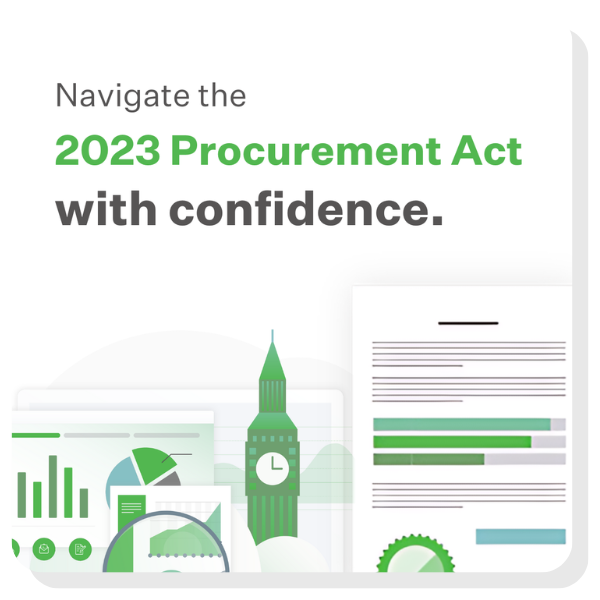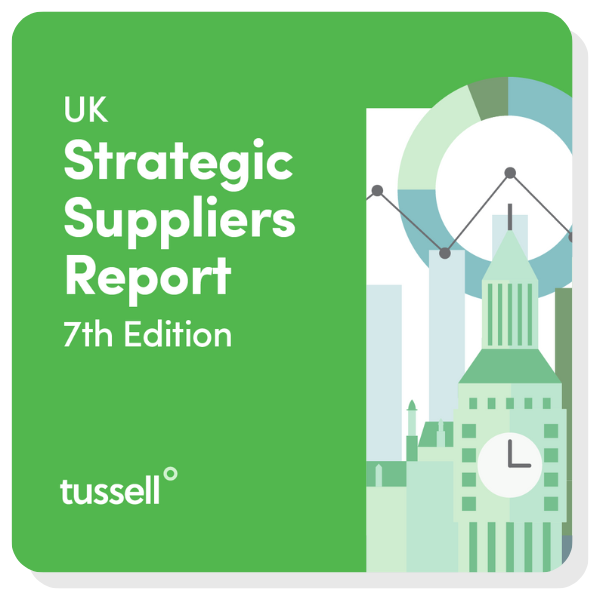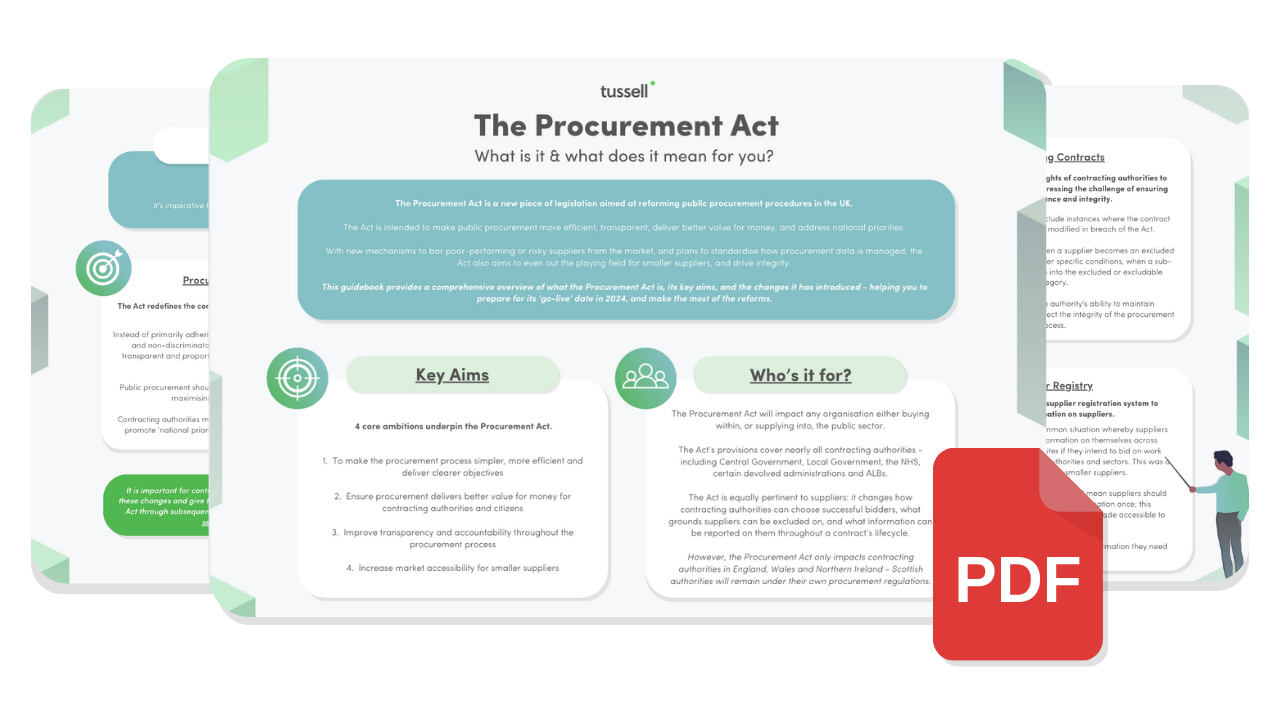Framework agreements and Dynamic Purchasing Systems (DPSs) are a critical route-to-market in the public sector.
In 2023, nearly 1/3rd of all government contracts were awarded via these procurement routes.
And their usage is on the rise: 250% more contracts were called-off via a framework in 2023 vs. 2019, according to analysis by Tussell and the Financial Times.
Frameworks are about to undergo some important reforms, however, under the 2023 Procurement Act. How are frameworks about to change?
This article takes a look at what changes the 2023 Procurement Act will make to procurement frameworks - including the introduction of 'open frameworks' - and how public sector buyers and suppliers will be affected.
Don't fancy reading? Watch the video version of this explainer 🎬
Skip ahead to read about:
- What are procurement frameworks?
- How do procurement frameworks differ from DPSs?
- How will frameworks change under the 2023 Procurement Act?
- How will these 3 changes affect buyers and suppliers to gov't?
***
This article is part of a series of articles on the 2023 Procurement Act.
Head to Tussell's Procurement Act Hub for all the information and resources you need to get Procurement Act ready.
🔎 What are procurement frameworks?
But first, a quick recap.
Under the current regime, a framework is an agreement established between one or more public sector buyer and one or more supplier.
Each framework consists of a list of pre-approved suppliers who have been evaluated and selected to provide a predefined set of services and/or products. Typically, framework agreements can last up to 4 years (except defence and utilities frameworks which may last up to 8 years).
Frameworks can be used by public sector buyers to 'call-off' new contracts without the need for an open tender process.
Source: Tussell
For buyers, this speeds up the procurement process by limiting the pool of potential bidders to a pre-approved list.
For suppliers, getting on a framework opens up the opportunity to bid on contracts that cannot be bid on by companies that are not party to the agreement.
Framework agreements can be incredibly lucrative for suppliers. For buyers, they can be a cost-effective low-risk way to procure specific products and services quickly.
Not all framework agreements are made equal. Check out Tussell's analysis on public sector framework agreements to find the most-used framework agreements in your market and the most SME-friendly frameworks in your sector.
Guide: How to find the right public sector frameworks
🤔 How do procurement frameworks differ from DPSs?
Dynamic Purchasing Systems (DPSs) are similar to procurement frameworks in the sense that they provide public sector buyers with a pre-approved list of suppliers to call off contracts from.
Unlike frameworks, however, suppliers can join a DPS at any point during the lifetime of the DPS (so long as the supplier fits the eligibility criteria).
For this reason, DPSs provide greater flexibility than frameworks. They are also less prone to locking newer suppliers and SMEs out of the market.
DPSs are being replaced by Dynamic Markets under the Procurement Act. Read Tussell's full explainer to learn all about them.
⚙️ How will frameworks change under the 2023 Procurement Act?
Unlike DPSs - which are being entirely replaced by Dynamic Markets - the changes being made to frameworks are more subtle.
The three key changes you need to know are:
-
A new type of framework - the open framework - is being introduced to bridge the gap between traditional framework agreements and Dynamic Markets.
-
The mechanism for calling off from frameworks will be simplified.
-
New information will be required to be published by framework providers upon the creation of a framework.
Let's run through those changes in turn:
🔑 #1 - Open frameworks
From February 24th 2025, contracting authorities will have the ability to procure through 'open frameworks'.
Similar to regular frameworks, prospective suppliers may bid to join the framework agreement before the framework start date.
Unlike traditional closed frameworks, however, contracting authorities will be permitted to appoint new suppliers to the framework during its lifetime. To facilitate this, open frameworks may be opened up at least twice whilst they are already live.
Open frameworks will also be permitted to run for up to 8 years - twice the length of most traditional framework agreements.
This new framework type is intended to improve flexibility and should facilitate a more competitive market.
By providing suppliers with multiple opportunities to join, open frameworks are less likely to exclude smaller and newer suppliers. The hope is that this will make it easier for contracting authorities to use frameworks to procure from SMEs.
Access Tussell's 2025 Public Sector Frameworks Report
➡️ #2 - Changes to the call-off process
The 2023 Procurement Act is set to usher in new mechanics for awarding call-offs via all framework types.
Currently, contracts awarded via a framework agreement can be awarded either through mini competitions or a direct award.
This is not set to change.
However, going forward, contracting authorities may only award a contract directly if the framework sets out the core terms of the contract and an objective mechanism for supplier selection. (1)
This reference to “core terms” replaces "all the terms governing the provision of the works, services and supplies concerned" which appears in the current procurement regulations.
Whilst subtle, this change more accurately reflects the way frameworks are actually used.
Many hope that this change will add clarity and enable contracting authorities to more easily award contracts directly in situations where such an approach is needed.
🔎 #3 - Call-off information & framework notices
At current, contracting authorities are obligated to publish limited information about contracts awarded under framework agreements.
In fact, they are only required to provide the following information on the Contracts Finder website.
-
The name of the supplier
-
The date the contract was entered into
-
The value of the contract
Whilst Cabinet Office guidance recommends the publication of further information, there is no legal requirement for procurement teams to do so.
Critics of the current system claim that the lack of information published regarding call-off contracts has undermined public trust in procurement frameworks and led to non-transparent and potentially non-competitive call-off processes.
This will change when the 2023 Procurement Act comes into force.
All contracts - call-off contracts and non-framework contracts alike - will be subject to the same new-style 'contract award notices' as well as additional 'contract details notices'.
These new 'contract award notices' will include details of both the successful and (if applicable) unsuccessful tenderers.
* * *
Framework notices themselves are also changing.
'Framework notices', published by framework providers, will soon be required to contain the following:
-
A description of goods, services or works which may be called off from the framework;
-
The price payable, or the mechanism for determining the price payable, under such contracts;
-
The selection process for awarding call-off contracts from the framework;
-
The term of the framework;
-
Which contracting authorities are entitled to award contracts under the framework;
-
The estimated value of the framework *
-
Whether the framework is an open framework;
Whether these changes will meaningfully impact transparency has yet to be seen.
Critics of the new legislation suggest that more data doesn't necessarily equal more useful data and that the public sector may be unable to keep up with the work involved with filling out all these new notice types.
* Suppliers should be wary of "estimated [framework] values" as these are regularly over-inflated by framework providers.
Instead, hard data should be used when possible to assess the true value of framework agreements.
Speak to the Tussell team to learn which frameworks are actually being used in your market.
🤔 How will these 3 changes affect buyers and supplier to gov't?
Experts suggest that the Procurement Act could increase transparency and demystify the public sector procurement process.
There is hope that the introduction of new award notices will allow for better public accountability - specifically in relation to call-off and framework contracts.
However, critics of the changes suggest that these new notices are unlikely to provide more meaningful data on public procurement.
Rather, they suggest, that the influx of new notices will increase the time burden on an already struggling public sector.
Open frameworks could provide an alternative route for public sector procurement teams and afford greater opportunities to new businesses than traditional framework agreements.
These new open frameworks may well facilitate a more competitive landscape and lead to fewer SMEs being locked out of the market.
However, time will tell how much these new open frameworks are actually used.
* * *
Worried about how the Procurement Act will affect your business? You're not alone.
The Procurement Act presents the biggest change to public procurement in almost 10 years - possibly even longer.
Tussell's market intelligence platform provides data-driven insights into the public sector market. No matter how the procurement landscape changes in years to come, you can always rely on Tussell for trusted insight into your target accounts, frameworks and competitors.
Book a demo with the Tussell team to learn how you can start using data to drive public sector sales and future-proof your business.
This article is part of a series of articles on the 2023 Procurement Act.
Head to Tussell's Procurement Act Hub for all the information and resources you need to get Procurement Act ready.
Sources:
(1) Tim Care, Procurement in a Nutshell: Procurement Act 2023 – Frameworks (Wardhadaway),https://www.wardhadaway.com/insights/updates/procurement-in-a-nutshell-procurement-act-2023-frameworks/
(2) Nick Pimlott, Procurement Act 2023 - Frameworks and Dynamic Markets (Fieldfisher, https://www.fieldfisher.com/en/insights/procurement-act-2023-frameworks-and-dynamic-markets)
(3) Emily Heard, Jessica Boardman, Procurement Bill Byte 5: Frameworks and Dynamic Markets (Bevan Brittan, https://www.bevanbrittan.com/insights/articles/2022/procurement-bill-byte-5-frameworks-and-dynamic-markets/)
(4) Alison Walton, How framework agreements will work under the procurement act 2023, (Muckle, https://www.muckle-llp.com/insights/legal-commentary/framework-agreements/)














%20(1).png?width=450&height=236&name=Blog%20%2B%20Resource%20Headers%20(Standard)%20(1).png)


-1.png?width=450&height=330&name=Procurement%20Act%20Hub%20Graphics%20(1)-1.png)
.png?width=815&height=200&name=TUSSELL_Demo_CTA_Banners%20(6).png)


